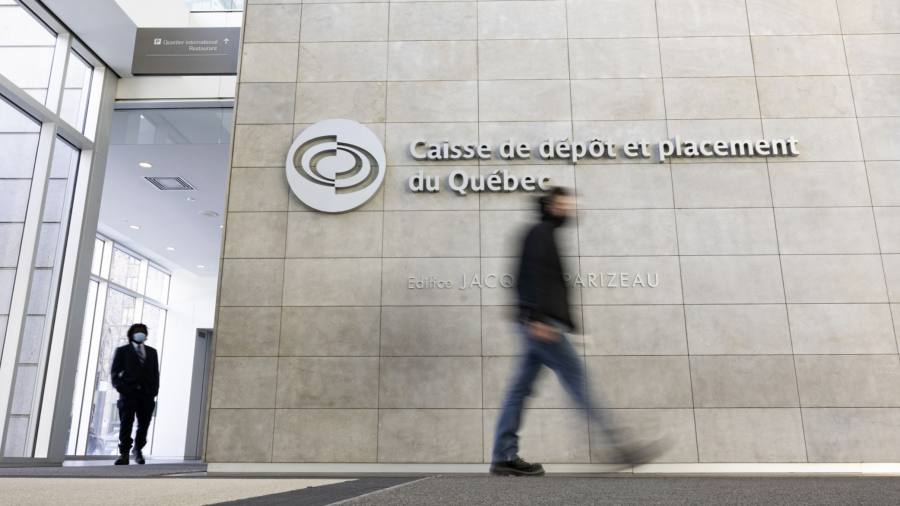
A top Canadian pension fund has put the brakes on its investment in China, making it the latest western investor to pull back from the country amid rising geopolitical tensions.
Caisse de dépôt et placement du Québec (CDPQ), the C$400bn ($295bn) global investment group, has stopped making private deals in China and is closing its Shanghai office, according to people familiar with the matter.
The fund — which manages money on behalf of pension and insurance plans — is following other large investors in dialling back their activity in the world’s second-largest economy.
Singapore’s sovereign wealth fund GIC has slowed the pace of its direct investments in China, while Ontario Teachers’ Pension Plan said in January that it had paused future direct investments in the country.
CDPQ is closing its Shanghai office later this year and is now leading its regional investment efforts from Singapore. It still has interests in China, including Hong Kong-based supply chain compliance solutions business Qima.
“We paused private investments for some time already — and have focused on liquid markets, which is the majority of our 2 per cent total portfolio exposure to China. We expect this trend to continue,” CDPQ said in a statement.
The fund’s decision comes less than two years after CDPQ’s chief executive, Charles Emond, said that the pension giant was planning to increase its exposure to China from about 4 per cent of its overall portfolio to as much as 10 per cent in the years to come.
Since then, relations between Beijing and the west have continued to deteriorate.
In recent months, China has cracked down on consultancy firms, rattling western companies that rely on their advice, and banned operators of critical infrastructure from buying US chipmaker Micron Technology’s products.
In return, the US has made it more difficult for China’s tech sector to access cutting-edge components and machinery. The US government is also weighing imposing restrictions on outbound investment into China.
Business leaders are carefully navigating their relationship with China as the country reopens following the coronavirus pandemic. Several high- profile foreign executives, including Elon Musk, the chief executive of Tesla, and Jamie Dimon, the chair and chief executive of JPMorgan, have made recent visits to the country.
But Dimon did warn of the risk for investor confidence of “uncertainty” about the Chinese government’s policies, as manufacturing data showed that the recovery in the world’s second-largest economy is faltering.
Private equity firms in particular could face a reckoning over the close ties they have built to China. Some Chinese state-backed investors, such as the State Administration of Foreign Assets and China Investment Corporation, have poured money into dozens of western buyout groups, the Financial Times has reported.
The close relationship between private equity and the Chinese state has become increasingly at odds with the shifting political mood in western capitals, where governments have become much more vigilant about the potential for Chinese influence over strategic industries.
Those deals are also starting to attract political scrutiny because they have created ties between Beijing and western economies that could be nearly impossible to pick apart.